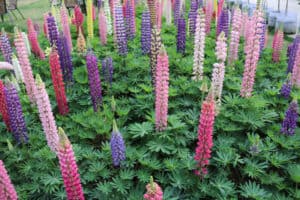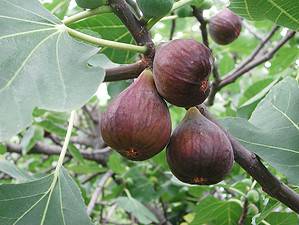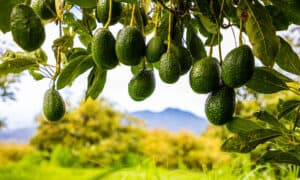Cucumbers (Cucumis sativus) are a tropical creeping vine originally native to India and Southeast Asia. Still, they are grown and enjoyed worldwide for their refreshing taste and ease of use in many kinds of dishes. They came to America from Europe sometime in the 1600s. They are often pickled or eaten raw, along with being a great source of hydration. While a fully mature plant can grow as long as 2 feet, they are most commonly ready for consumption at 1 foot or smaller. But what exactly are cucumbers? Are they fruits or vegetables? Are cucumbers and pickles the same food? What is the difference between a fruit and a vegetable? Read on to find answers to these common questions!
Cucumber: Fruit or Vegetable?
Cucumbers can be classified as both a fruit and a vegetable! The answer depends on whether you are asking from the culinary or the botanical standpoint.
From a Culinary Perspective
From a culinary perspective, cucumbers are a vegetable!
In the culinary world, the preparation method and flavor profile define fruits and vegetables. People often eat fruits raw or use them in jams due to their sweeter taste. Conversely, vegetables typically grace soups and stir-fries, providing a milder taste once cooked. Fruits also tend to have softer skin, while vegetables usually have a tougher outer layer.
Cucumbers do have different flavor profiles when pickled. However, because we tend to eat them raw and they have a blander taste, they are classified as vegetables from the standpoint of a cook.
From a Botanical Standpoint
A botanist, however, would choose to identify cucumbers as fruits. Botanists and nutritionists separate fruits and vegetables based on which part of the plant they grow from. Fruits will have seeds and grow from a flowering plant. On the other hand, vegetables are typically another part of the plant altogether, such as the stem, leaves, or roots. Cucumbers come from the plant’s flower (and they have seeds), making them fruit from the botanist’s perspective.
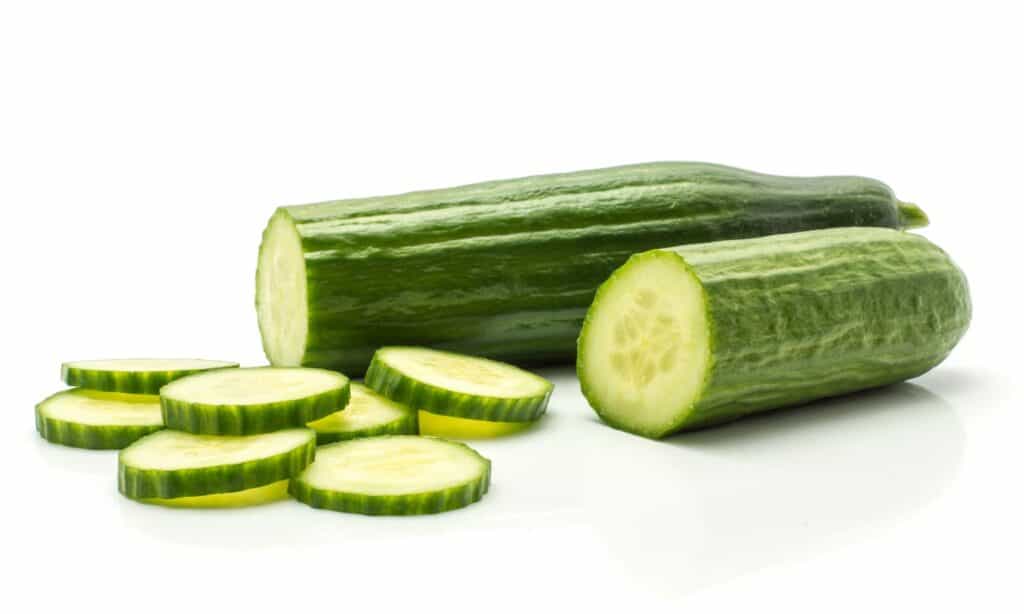
Cucumbers are fruits from the botanical perspective, but so are pumpkins, watermelons, and squash.
©iStock.com/Kateryna Bibro
Why the two separate classifications? Each one has its own use!
The culinary perspective is most relevant for the average person and even for cooks and nutritional experts. Many fruits or vegetables can belong to the same family but vary widely in nutritional information. Cucumbers are fruits from the botanical perspective, but so are pumpkins, watermelons, and squash. Each of these has different dietary effects, strengths, and uses. When asking questions such as “Are cucumbers healthy?” or “What’s the difference between cucumbers and pickles?”, it is most helpful to think from the culinary perspective.
When we examine food from the botanical perspective, new questions and focuses arise. Suppose we are examining how many kinds of cucumbers there are, where cucumbers come from, or how to grow and harvest them. In that case, it can be much more useful to think botanically because that perspective is concerned with the physiology and maturation of the plant.
What Is the Difference Between Cucumbers and Pickles?
Pickling is a process through which vegetables are fermented in brine solutions, usually consisting of vinegar, salt, and other spices, which change their form and taste. The word pickle actually comes from the Dutch word pekel, which means “brine.”
While it’s true that you can pickle any cucumber, it doesn’t mean all pickled vegetables are cucumbers. You can also pickle a wide variety of vegetables, from radishes, onions, and carrots to sauerkraut and cauliflower. However, since pickled cucumbers hold the popularity title in America, the term “pickle” usually implies a cucumber that’s been soaked in brine.
Two common types of cucumbers are slicing cucumbers and pickling cucumbers.
Slicing cucumbers are dark green all over, grown to eat fresh, and tend to be larger and longer for use in salads, stir-fries, and the like. Pickling cucumbers are thicker and smaller, and their bumpier skin will be a lighter shade of green at the ends.
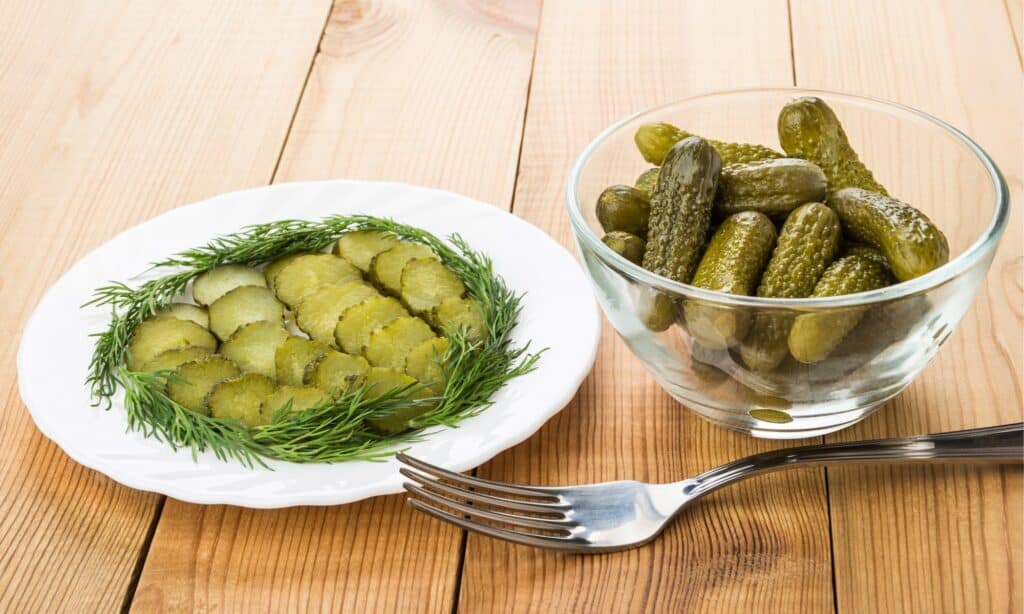
Technically, all cucumbers can be pickled, but not all pickled vegetables are cucumbers.
©iStock.com/EugeneTomeev
Are Cucumbers Healthy? What About Pickles?
Cucumbers are the perfect snack to keep you hydrated because they are 96% water. While this does leave little room for mineral and vitamin content, the good news is that cucumbers are rich in antioxidants, as well as the plant compounds cucumegastigmanes and cucurbitacins, all of which help lower inflammation in the body.
Cucumbers are a great addition to most eating styles because they are low-fat, low-calorie, and low-carb. There are also small amounts of vitamin K in cucumbers. A full cup portion would provide just over 20% of the daily recommendation. A few servings a week can help improve bone health and prevent blood clotting.
Pickles differ from cucumbers because soaking them in brine increases their vitamin concentration. Like cucumbers, pickles are low in fat. They contain 20% of the daily suggested dosage of Vitamin K, small amounts of Vitamin A (which helps maintain eyesight health and boosts the immune system), and around 4% of the recommended daily amount of Vitamin C. Pickles also contain calcium and potassium, which help increase bone strength and nerve function accordingly.
How Do I Grow Cucumbers?
Cucumber plants come in two different forms: bush cucumbers and vining cucumbers.
Bush cucumbers grow easily in confined spaces such as garden containers or small backyards. Vining cucumbers (the most popular type) are quickly maturing, large-leafed vines that often grow along fence lines or trellis. They also provide a larger yield of cucumbers when harvesting time comes.
If you’re trying to grow cucumbers of your own, the optimal season will be during the summertime. That’s because cucumber plants cannot survive at all in the cold. They cannot grow until soil temperatures are reliably at least 70 degrees Fahrenheit.
Be sure to grow your seeds where they will receive a minimum of 6 hours of sun daily. Plant them 1 inch deep and 1 foot apart (if they are on a trellis) or 3 to 5 inches apart (if they are planted in mounds on the ground.) Soil fertility can be improved by adding 1-2 inches of compost at least 6 inches beneath the ground. As long as they receive up to an inch of water a week, your plants will grow fast and healthy. You can also mix in straw mulch and cover the seeds with berry baskets or netting to protect the plant from garden pests such as beetles and slugs.
When and How Do I Harvest Cucumbers?
Cucumbers will be ready to harvest when they are around 2 inches wide and 6-8 inches long. Hard, thickened skin with a darker greenish hue is a common indicator to be watchful for. Cucumber benefit from being harvested early, as they continue to grow after being cut off the plant. They do not ripen faster once removed from the vine, so allow a little time before eating.
Harvest times will occur sporadically because the plants begin to fruit after bees pollinate them, which happens at multiple points during their growth.
Wait for a cool morning and use a sharp, sterile knife to cut the cucumbers off the plant. They should then be transferred to cooler conditions to help keep them fresh. Take care not to tear or twist the vines, as this will damage the crop prematurely when it could still continue to yield more food.
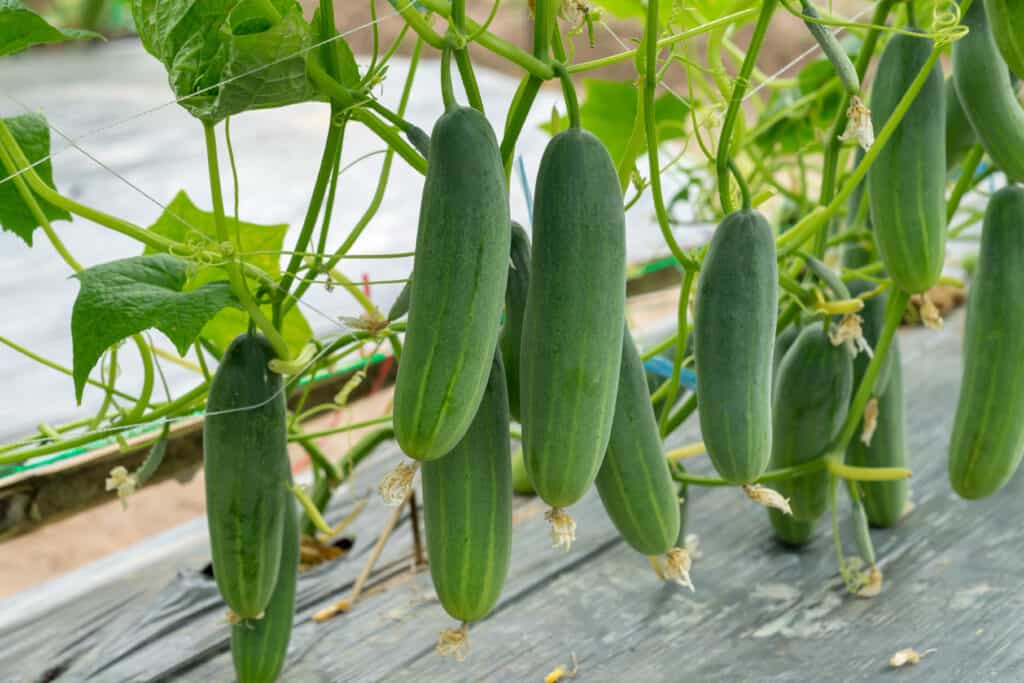
Cucumber benefit from being harvested early, as they continue to grow after being cut off the plant.
©Tortoon/Shutterstock.com
The photo featured at the top of this post is © iStock.com/bhofack2
Sources
- HEALTHY CANNING, Available here: https://www.healthycanning.com/pickling-versus-slicing-cucumbers
- Foods Guy, Available here: https://foodsguy.com/cucumbers-vs-pickles/
- Healthline Media, Available here: https://www.healthline.com/nutrition/is-cucumber-a-fruit#cucumber-basics
- EatingWell, Available here: https://www.eatingwell.com/article/7986453/are-cucumbers-fruit-or-vegetable/
- EUFIC, Available here: https://www.eufic.org/en/healthy-living/article/is-a-cucumber-a-fruit-or-a-vegetable-and-why#:~:text=The%20botanical%20classification:%20Cucumbers%20are%20fruit.,-A%20botanist%20would&text=A%20botanical%20fruit%20would%20have,the%20flower%20of%20the%20plant.&text=With%20this%20definition%20in%20mind,flower%20of%20the%20cucumber%20plant
Thank you for reading! Have some feedback for us? Contact the AZ Animals editorial team.



